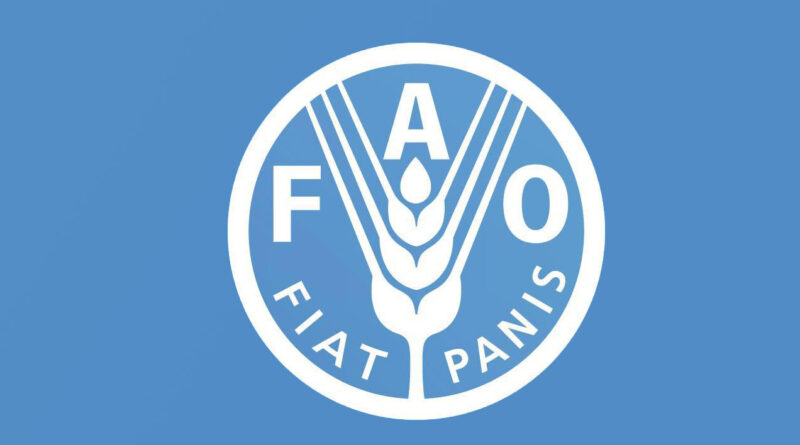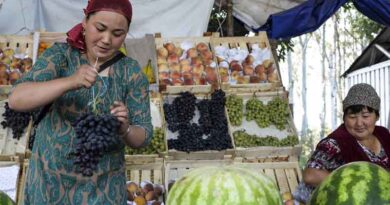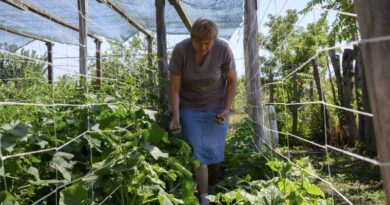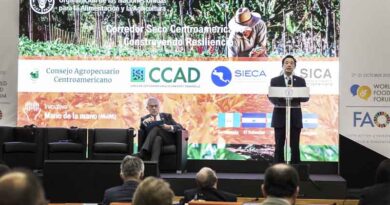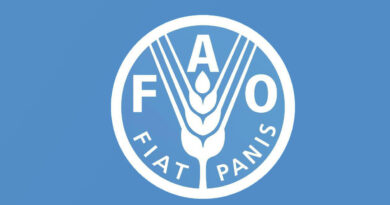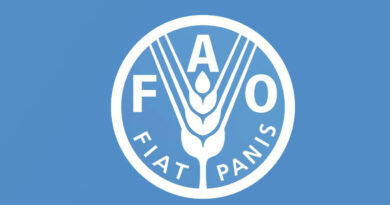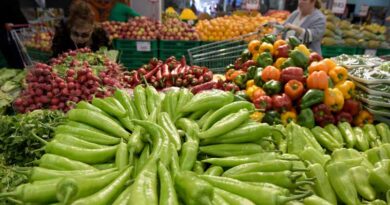Europe and Central Asia: “economic and agricultural powerhouse” with solutions at hand
25 May 2021, Rome/Budapest: The region of Europe and Central Asia is an economic and agricultural powerhouse that boasts diverse cultures, agri-food systems and climatic zones, FAO Director-General QU Dongyu said today. This diversity, he added, provides opportunities to share experience and good practices within the region and beyond, but to tap this potential the region needs more investment and innovation.
The FAO Director-General was speaking at the Regional Dialogue for Europe and Central Asia on policy and governance issues to transform agri-food systems.
Also Read: EpiCor® Postbiotic Now Offering Immune Support to Food & Beverage Industry
A rich exchange of views and dynamic discussion took place among senior government officials, civil society organizations, academia, private sector representatives, farmers, producers’ organizations, as well as youth representatives and the general public interested in food and nutrition-related issues.
The participants noted that the world is facing unprecedented challenges that are becoming increasingly complex and new pathways for the planet and people need to be discussed and shared. They agreed that the region can and should play a key role in this conversation driving the development of game-changing solutions to transform agri-food systems. This debate is particularly important in the run-up to the UN Food Systems Summit (UNFSS) in September this year.
Game-changing solutions
In his opening remarks, the FAO Director-General said that with 690 million people already chronically undernourished, the COVID-19 pandemic has exacerbated the situation further, exposing the fragility of current agri-food systems.
According to the 2021 Global Report on Food Crises, conflict, extreme weather, economic shocks – including due to COVID-19 – pushed an additional 155 million people into acute food insecurity in 2020. Moreover, three billion people still cannot afford healthy diets, and unsafe food supplies are affecting one in 10 people.
Under the current circumstances, the holistic redesign of agri-food systems is crucial, QU stated. We need to move towards systems that sustainably deliver healthy diets, relieve pressure on the planet’s natural resources and drive inclusive economic growth, he said. The FAO Director-General also pointed out that agri-food systems should be fair and equitable, ensuring decent employment to all in all stages of the food supply chain.
Speaking at the event, Martin Frick, Deputy of the UN Secretary-General’s Special Envoy for the Food System Summit 2021, highlighted the importance of making agri-food systems more inclusive, focusing on those “who are the furthest behind” – indigenous populations, rural poor, and landless farmers. He also noted that innovation should go in two directions – equipping smallholder farmers with precision data and tools, but also promoting social innovation in the form of participatory models and collective decision-making.
Dmitry Mariyasin, Deputy Executive Secretary of the United Nations Economic Commission for Europe (UNECE), underscored the circular economy’s crucial role in making agri-food systems more sustainable, without compromising economic growth, which is particularly important in the post-COVID-19 recovery phase. This involves closing material loops, optimizing recycling opportunities, and reducing food waste in the agri-food system, he added.
In his welcoming remarks, Vladimir Rakhmanin, FAO Regional Representative for Europe and Central Asia, called on countries in the region to intensify efforts to lift the triple burden of malnutrition – undernourishment, micronutrient deficiencies and overweight and obesity. This is an essential driver for achieving the Sustainable Development Goals (SDGs), he added, noting that the region can pave the way for sustainable agriculture and agri-food systems.
The voice of youth
The dialogue also saw the participation of young people. Two schoolgirls from Kazakhstan, sisters Medina and Fatima Maysar, presented a video on nutrition preferences among their peers. The video revealed that although young people prefer the traditional home-cooked meals, they still consume a lot of fast-food. In conclusion, the girls pointed to the lack of educational programmes at school on healthy eating and lifestyle.
Sophie Healy-Thow, Youth Ambassador from Ireland, leading the Youth Community on UNFSS, echoed the sisters’ concern about the lack of awareness-raising among children and young people. Young people want access to safe, nutritious and affordable food, but access means nothing without education, she stressed.
The FAO Director-General welcomed the engagement of young people in today’s event and emphasized the pivotal role youth play in shaping agri-food systems transformation. “Their views will be an important contribution to the ongoing discussions in the region and beyond,” he said.
The opening session was followed by two panel discussions on building more equitable agri-food systems and minimizing negative impacts on the natural resource base. The event was moderated by journalist Conny Czymoch.
The panellists included Jamshid Khodjaev, Minister for Agriculture of the Republic of Uzbekistan; Arman Khojoyan, Deputy Minister of Economy of the Republic of Armenia; Annamurat Nazarov, Chief Specialist, State Sanitary Epidemiological Inspection, Ministry of Health of Turkmenistan; Elena Mateescu, Director-General of the Romanian Meteorological Administration and Vice-chair of WMO Standing Committee on Services for Agriculture; Armen Harutyunyan, Director of the EEC Agricultural Policy Department, Eurasian Economic Commission; Doaa Abdel-Motaal, Senior Counsellor, World Trade Organization; Jessica Fanzo, Bloomberg Distinguished Professor of Global Food and Agricultural Policy and Ethics, Johns Hopkins University; Žaklina Stojanović, Professor, University of Belgrade, Serbia; Namiq Shalbuzov, Deputy Director of the Agrarian Research Center of Azerbaijan; Doris Letina, Vice-President of the European Council of Young Farmers; Jaroslaw Ponder, Head of ITU Office for Europe; Blazhe Josifovki, President Of “Let’s Do Macedonia”; and Volkert Engelsman, representative of EOSTA, Trading Company in organic fruits and vegetables.
The event was organized by the UN Issue-based Coalition (IBC) on Sustainable Food Systems for Europe and Central Asia.

